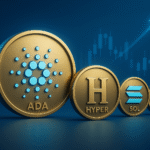Around $500 billion is lost each year due to global counterfeit products and supply chain fraud, prompting a significant call to action in the industry. The advent of blockchain proof-of-green supply chain solutions offers a potential remedy for this staggering economic loss while simultaneously addressing urgent environmental issues globally. Specifically, current statistics reveal that green hydrogen constitutes only 2% of the European Union’s total energy consumption, highlighting a greater reliance on fossil fuels, which account for 96%.
As supply chains become increasingly complex, the need for transparent, verifiable information is paramount. Blockchain technology provides a revolutionary framework that allows for the permanent tracking of products from their raw material origins through distribution channels. This initiative not only enhances trust and accountability among stakeholders but also strengthens the credibility of green initiatives aimed at sustainable sourcing practices.
Current supply chain management faces serious challenges due to significant information gaps and limited visibility; studies indicate that 45% of supply chain leaders only have insight into their first-tier suppliers, with a mere 7% achieving multi-tier transparency. These blind spots create substantial risks within intricate global networks. However, blockchain technology offers a viable solution through its distributed ledger architecture. Unlike traditional databases that centralize information, blockchain decentralizes data across multiple computers, ensuring that a permanent, tamper-proof record can be accessed by authorized users. This decentralized system bolsters data integrity and streamlines transaction documentation and validation.
The integration of blockchain with other advanced technologies, such as the Internet of Things (IoT) and smart contracts, further enhances supply chain security. By fostering a comprehensive system for real-time monitoring, blockchain complements existing enterprise resource planning systems while introducing added value.
One of the standout features of blockchain is its ability to provide verifiable proof of ethical sourcing across various industries. The challenge of confirming ethical practices often plagues global sectors, yet blockchain’s transparent and immutable ledger system can produce detailed records of product movement from manufacturers to consumers. Industries including fashion, food, pharmaceuticals, and even gaming can leverage this technology to combat issues such as labor exploitation and environmental degradation. For example, Tentree, a Canadian apparel company, utilizes blockchain to monitor its supply chains, thus verifying ethical labor practices and environmentally friendly sourcing.
The technology is particularly crucial in preventing greenwashing, where environmental claims often lack validation. By establishing transparent systems, blockchain guarantees the verification of environmentally sustainable practices across supply chains. The Climate Action Data Trust, for instance, employs decentralized ledgers to prevent the double-counting of carbon emissions, enhancing accountability through its open verification systems.
Additionally, blockchain not only helps in combating fraud but also enables precise tracking of carbon footprints. Frameworks like PwC’s Blockchain Sustainability Framework measure environmental effects, including energy usage and greenhouse gas emissions. Companies such as Provenance, Walmart, and Maersk have already demonstrated the effectiveness of blockchain in certifying supply chains. With the enactment of the EU MiCA Regulation, which mandates that crypto asset issuers report on sustainability, the importance of this capability is underscored.
The future for blockchain in supply chain logistics appears promising, with projections estimating the market will grow from USD 2.40 billion in 2024 to USD 95.30 billion by 2034, representing a remarkable annual growth rate of 44.5%. Some estimates are even more ambitious, predicting a market size of USD 943 billion by 2032.
Currently, blockchain technology is in its initial stages within the supply chain sector, focusing largely on research and development rather than widespread business adoption. With approximately 5,000 scientific publications and around 50,000 patents filed—more than double the academic interest annually—almost 1,000 patents are considered groundbreaking.
The next five years will be critical for the integration of blockchain alongside artificial intelligence and IoT technologies. This convergence promises enhanced data validation, improved delivery forecasting, and streamlined supply chain management. The use of smart contracts will facilitate financial transactions, reduce manual errors, and eliminate reliance on paper-based processes, marking a significant advancement for the industry as a whole.







